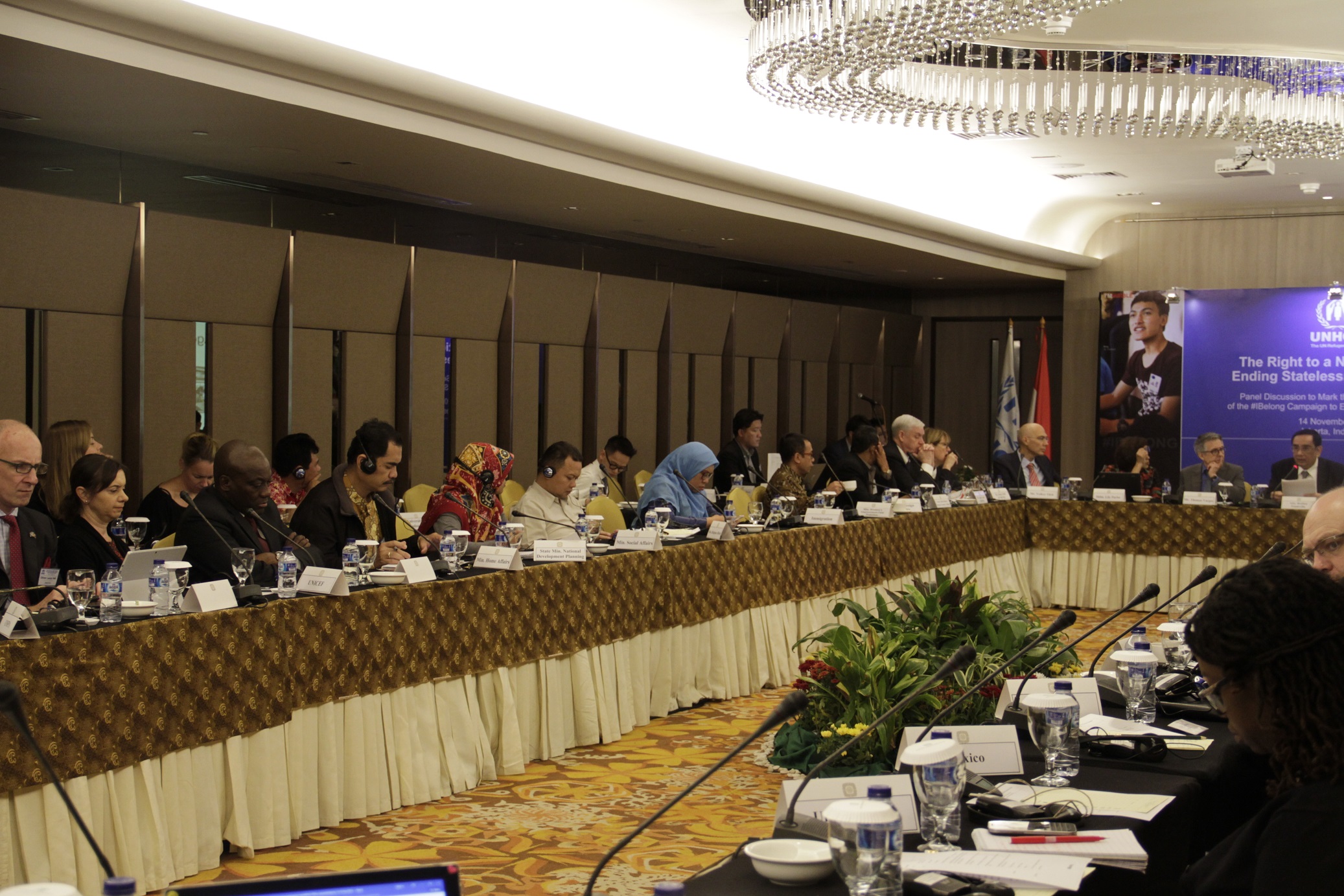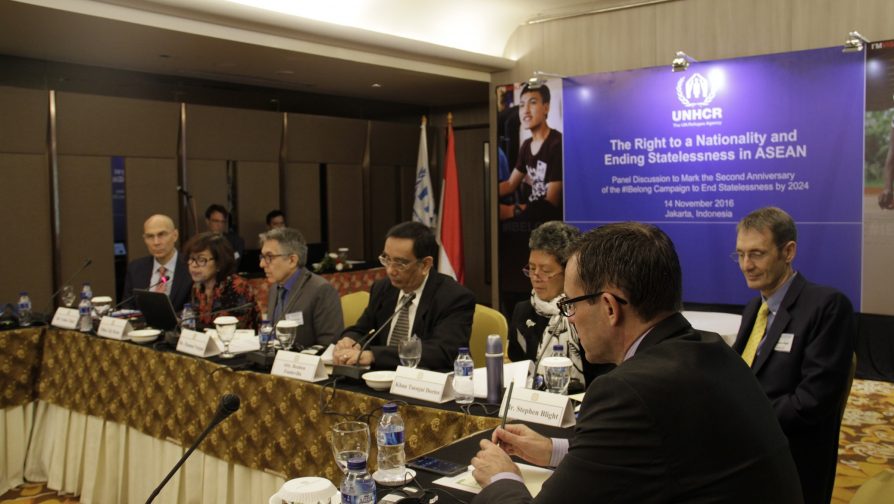On 14 November 2016, UNHCR’s Regional Office for Southeast Asia organized a panel discussion in Jakarta on “The Right to a Nationality and Ending Statelessness in ASEAN.”

Participants of the panel discussion on “The Right to a Nationality and Ending Statelessness in ASEAN” in Jakarta.
The UNHCR Assistant High Commissioner for Protection, Volker Türk, highlighted the progress that has been made in eradicating statelessness in the region over the past two years and also congratulated ASEAN states on their successful cooperation.
Mr. Türk welcomed the achievements of the governments of Indonesia and the Philippines in confirming the nationality of nearly 3,000 persons of Indonesian descent living in the southern Philippines, emphasizing that the cooperation between the two governments is a good example of how States can work together to resolve the global problem of statelessness. This achievement is one of a series of positive steps taken by ASEAN States since the launch of the global campaign to end statelessness by 2024.
“Since UNHCR launched the #IBelong campaign two years ago, ASEAN Member States have made real and quantifiable progress in addressing statelessness, with tens of thousands of stateless persons acquiring nationality and new policy commitments and initiatives made to further the goal of ending statelessness,” said Mr. Türk.

Panel members of the discussion on “The Right to a Nationality and Ending Statelessness in ASEAN” in Jakarta. © UNHCR/ M. Suryono
By definition, stateless people are not considered nationals by any State. As a result, they often face difficulties accessing their basic rights and services and being fully integrated into society. Current statistics indicate there are approximately 3.7 million stateless people across 78 countries, while UNHCR estimates that at least 10 million people globally could be stateless.
According to reported statistics at the end of 2015, some 40 percent of the world’s stateless people – more than 1.4 million – were living in Southeast Asia. This included affected populations in Myanmar (an estimated 938,000 persons, not counting those who are internally displaced), Thailand (443,862), Brunei (20,524), Malaysia (11,689), Viet Nam (an estimated 11,000), and the Philippines (7,138).
The causes of statelessness vary across countries. Gaps or contradictions in nationality laws are key causes, often preventing children from accessing the rights bestowed to citizens. In some countries, discrimination in nationality laws can cause statelessness, such as in cases where women are unable to transfer their nationality to their children. Lack of birth registration and resulting difficulties in acquiring identity documentation over generations can also prevent people from being able to demonstrate that they are entitled to nationality under the law.
In addition to Mr. Türk, panel members participating in the discussion included H.E. Mdm. Lily Purba, Indonesia’s Representative for Women’s Rights and Chair of the ASEAN Commission on the Promotion and Protection of the Rights of Women and Children; Atty. Reuben Fondevilla, Assistant Chief State Counsel for the Department of Justice for the Philippines; Khun Tuenjai Deetes, Commissioner for the National Human Rights Commission of Thailand; and Mr. Stephen Blight, Regional Child Protection Advisor under UNICEF’s Regional Office for East Asia and the Pacific. The discussion was moderated by Mr. Thomas Vargas, UNHCR’s Representative in Indonesia.
Share on Facebook Share on Twitter